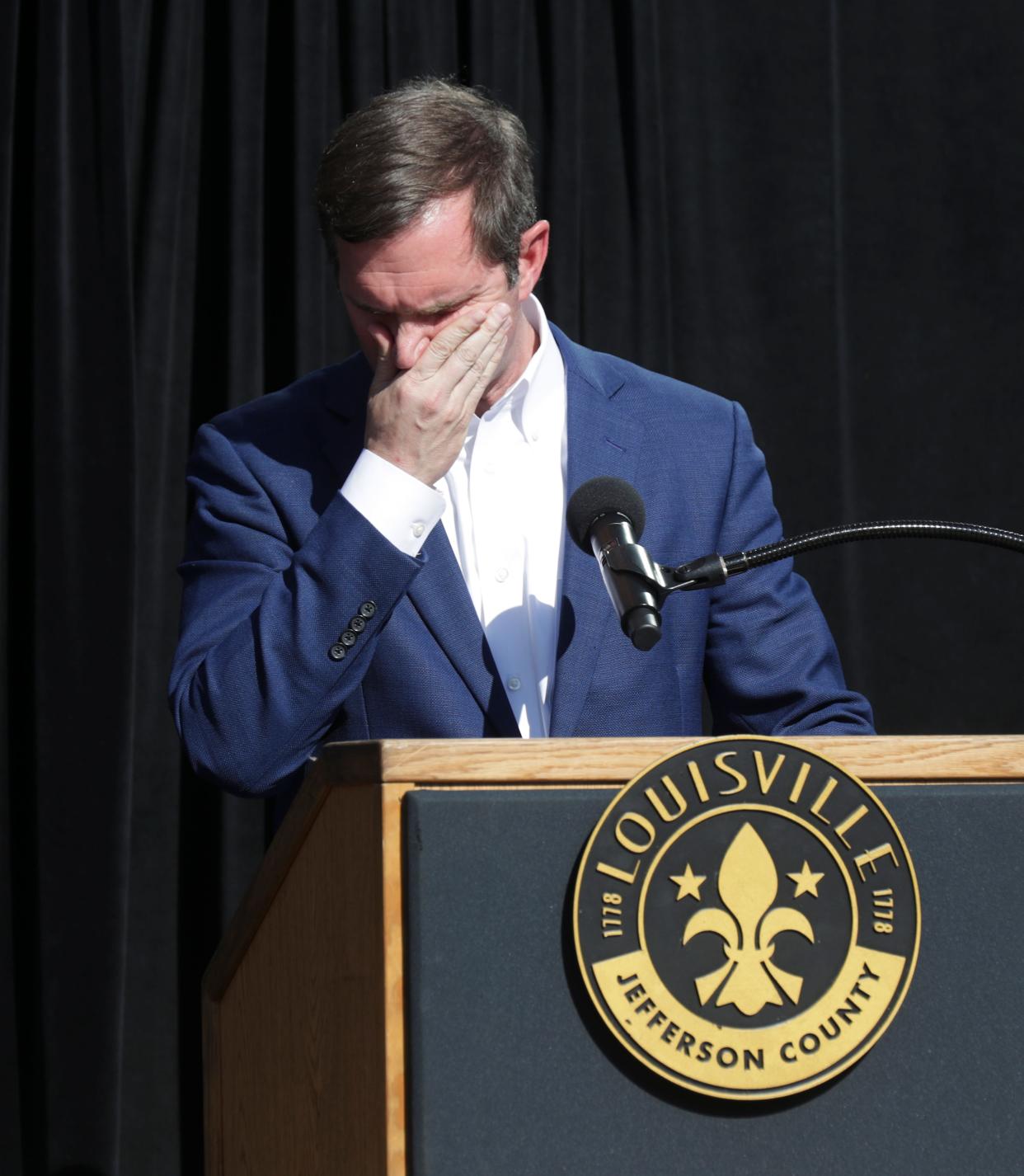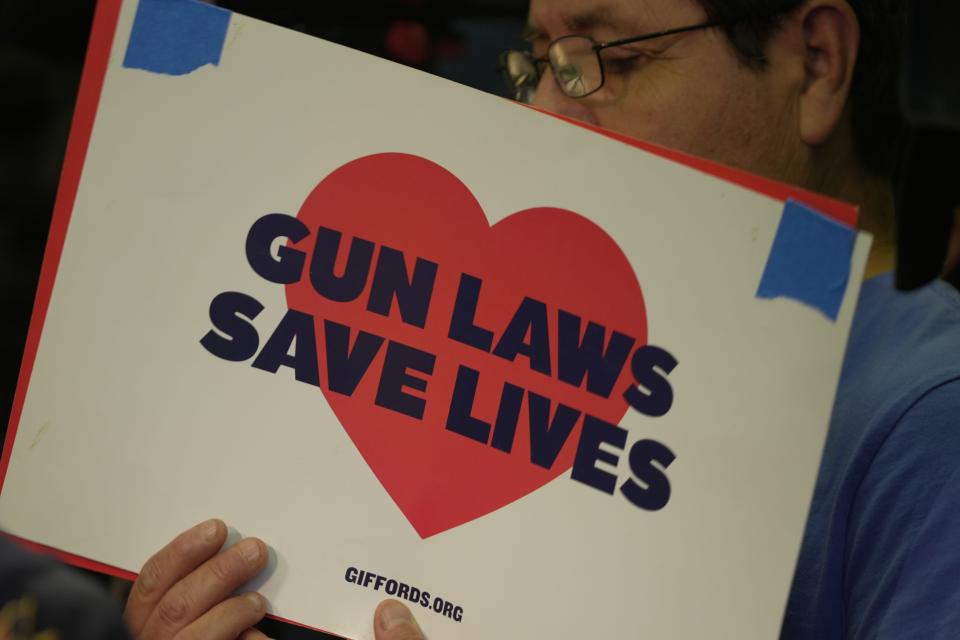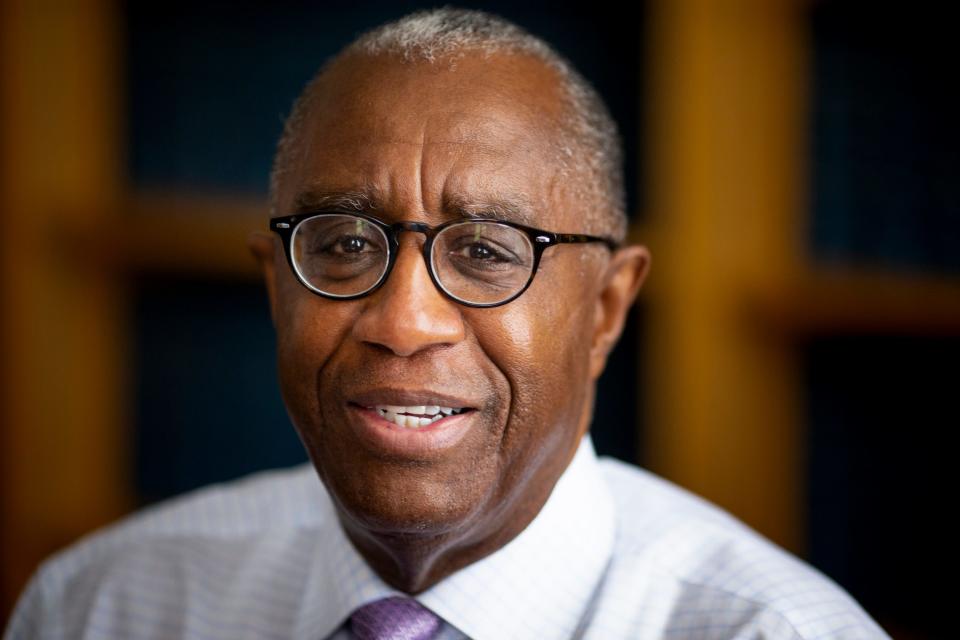Opinion: Gun restrictions alone won't stop mass shootings

After the Nashville mass shooting, U.S. Rep. Tim Burchett, R-Tennessee, said their is not much lawmakers can do about the school shooting in Green Hills where six people were killed. "We're not gonna fix it," he said.
Burchett is so wrong, especially at a time where 71% of Americans want stricter gun laws and 146 mass shootings have happened so far this year. But Burchett is right about the need to address mental health issues in trying to prevent mass shootings.
"Child trauma is common in mass shooters," according to a November 2019 article by psychologists Ned Rubin and Francine Feinberg of the Resiliency Leaders Task Force. We should pass stricter gun laws, but it won't solve the real problem that triggers gun violence in the first place: unresolved childhood trauma, which, when left untreated, shows up in adulthood.
A July 2022 article titled, "Influence of childhood trauma on perpetrators of mass shootings," by Kristen Rowe reveals that "investigators found the prevalence of childhood trauma in school shooters to be even higher − 68%."
The "State of Mental Health in America 2023" report by Mental Health America gives the following snapshot:
50 million American adults experience mental illness
28 million adults receive no treatment
60% of youth with major depression receive no treatment

Adverse childhood experiences are "the single-greatest unaddressed public health threat facing our nation today," according to the American Academy of Pediatrics. And a National Institute of Justice report reveals that mass shooters share a common trait: early childhood trauma and exposure to violence.
Childhood trauma shows up in health and behavioral challenges in adults if not treated. Untreated childhood trauma developed from birth to 18 years old is linked to gun violence, mass shootings, domestic violence, bullying, suicides, homicides and drug use. The National Child Trauma Stress Network states 78% of children in America reported more than one traumatic experience before age 5, and 223 million adults in America (70%) experienced at least one traumatic event in their lives.
Jillian Peterson, a psychologist and professor of criminology and criminal justice at Hamline University, and James Densley, a sociologist and professor of criminal justice at Metropolitan State University, summed it up in a Los Angeles Times opinion editorial: "We have studied every mass shooting since 1966. Here's what we've learned about the shooters. ...The vast majority of mass shooters in our study experienced early childhood trauma and exposure to violence at a young age."
As President Joe Biden and Congress continue to grapple with gun laws to help stop gun violence, it's critical they understand that passing gun restrictions is not enough. That is why I am calling on the president and Congress to fund a "National Childhood Trauma Treatment and Prevention Act." This act would address resolving violence in America, including gun violence, by preventing and treating childhood trauma in both children and adults. The act would be modeled after the California Surgeon General's Roadmap for Resilience Report 2023. California has served more than one million of its citizens in addressing adverse childhood experiences.
The act would include the following policies:
All Americans should have access to free child-trauma-informed care and services.
Designate $50 billion for implementation in all 50 states. Each state would be allocated $1 billion over a five-year period to help treat and prevent child trauma in children and adults.
Fund two trauma-informed-care therapists for all U.S. public and private K-12 schools.
Develop a national trauma-informed-care guide for use by parents, principals, teachers, educators, health care workers, public health organizations, social services, early childhood education, justice system, faith-based organizations, colleges and universities and the media.
Fund grants for faith-based organizations and nonprofit groups committed to resolving child trauma in their local communities.
The time to act is now before more blood is spilled and more young people are traumatized by gun violence.
Charlie Winburn, a resident of Mt. Airy, is executive pastor of Renew Community Church, a strategic partner with Rainstar Capital Group, a member of the Ohio Civil Rights Commission and a former Cincinnati City Council member and Hamilton County treasurer. He is also the author of "60 Seconds to a Focused Life."

This article originally appeared on Cincinnati Enquirer: Opinion: Childhood trauma linked to gun violence

